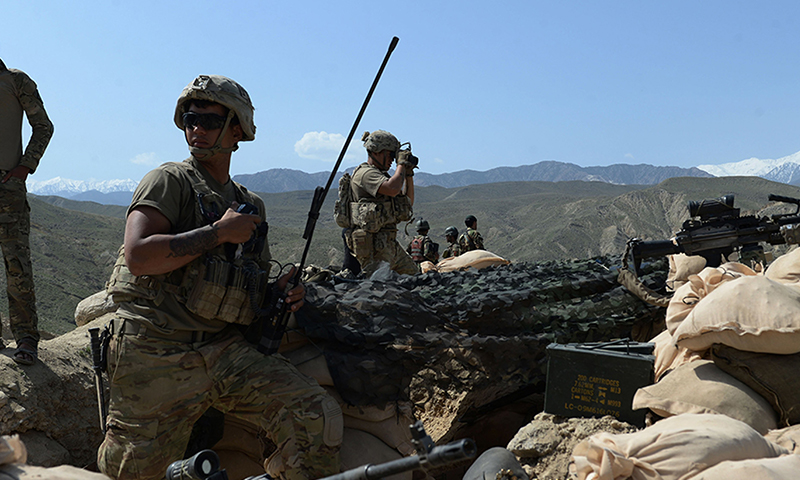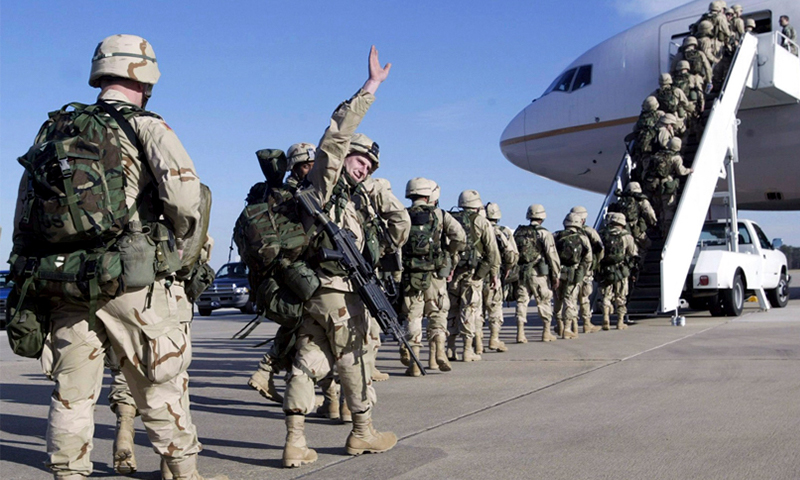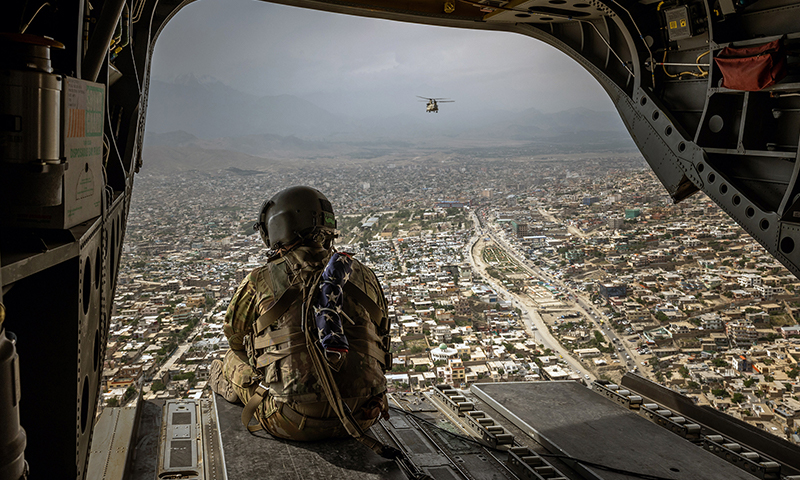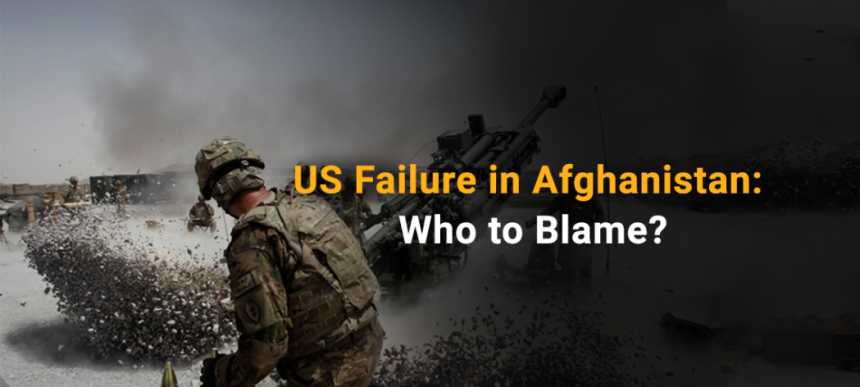The Afghan predicament has been a contentious element between the United States and Pakistan. The relationship has had a transactional connotation since the very outset of the War on Terror. Now, when the curtains have finally been fallen and the foreign forces have unceremoniously left Afghanistan, Pakistan is scapegoated by the Pentagon and Washington D.C. for their own failure.
The scheme of things in Afghanistan has turned in favour of the Taliban and has been surprising for many. The collapse of the Afghan National Army and the fall of Kabul is presented as a result of Pakistan’s continuous aiding and abetting of the Taliban. However, this explanation of the US failure in Afghanistan is over-simplistic and far-fetched. It overlooks the policy blunders committed by the US administration.
The US exit strategy was dependent on building a national army that could help the Kabul administration is consolidating its authority over Afghanistan. The flaw in this plan was foresighted by Chief of Army Staff General Ashfaq Pervez Kayani, a decade before the unceremonious withdrawal. On his visit to the White House in October 2010, he gave a 13-page white paper to Barack Obama, in which he explained that the war in Afghanistan is not winnable, and the country cannot be transformed in a manner the US is trying to do.

As stated by Vali Nasr, in his article published in Foreign Policy in March 2013, Gen. Kayani explained to him that an army of 400,000 Afghan soldiers is not economically sustainable and it will eventually collapse and cause more problems than to be able to become part of the solution. He even recommended that it would be more beneficial for the US to negotiate a settlement with the Taliban than wasting US taxpayers’ money on the Afghan Army. In a hindsight, it can be believed that the apprehensions of Gen. Kayani have turned out to be true.
An investigative report by the Washington Post, published in December 2019, revealed that the US military leadership in Afghanistan was completely devoid of clarity regarding the policy objectives in Afghanistan. The release of confidential interviews and statements of top officials gave the impression of frustration and confusion. The report stated that there were fundamental disagreements on the US objectives. They did not know what they were doing in Afghanistan.

Before calling out Pakistan for its alleged double-game, the US administration should remember that they were the ones who pressurized Ashraf Ghani to release 5,000 Taliban prisoners as agreed under the Doha agreement. In 2018, also, the US pressed Pakistan to release three key Taliban leaders, from its prison, including Mullah Abdul Ghani Baradar who later became the Taliban’s political chief and was appointed as head of its political office in Doha.
The Doha Agreement which was signed in February last year between the US and the Taliban delegations, represented by Zalmay Khalilzad and Mullah Baradar respectively, provided a degree of legitimacy to the insurgent group fighting against Afghan Army and foreign forces present in Afghanistan. The clauses of the agreement were more directed towards the safe and early withdrawal of US forces instead of ensuring stability in Afghanistan.
Pakistan, which helped the US in bringing the Taliban to the negotiation table, was persistently pleading with the US administration that intra-Afghan dialogue and establishment of an interim government with representation from all segments of Afghan society is imperative before a withdrawal happen. However, the US went forward in giving a withdrawal date to the Taliban that acted as a morale booster for them.

Both parties agreed in Doha that the Taliban will abstain from attacking international forces. But, there was no such clause to protect the Afghan National Army from Taliban assaults. This helped them in continuing their killing spree of Afghan forces while also negotiating with the Ashraf Ghani-led government in Kabul. Without US airstrikes, the Afghan Army found itself completely helpless in remote battlefield areas of Afghanistan. Which affected their determination to continuing the fight to the end.
Similar arguments were raised by US Senator Chris Van Hollen, during a recent hearing of the Senate Foreign Relations Committee. He argued that the US actions helped the Taliban in expediting their drive to achieve control of Afghanistan. The US Secretary of State, Antony Blinken also concurred with the questions forwarded by the Senator.

Pakistan did keep a degree of leverage with the Afghan Taliban because of the history of the relationship between the two from the time of Afghan Jihad. But, the way this influence has been portrayed by western scholars and analysts is overly exaggerated. The argument that Pakistan supported Afghan Taliban financially and logistically and ultimately failed the US objectives is bizarre and unfounded. Pakistan just did not have the economic resources to achieve what it is blamed for.
The so-called experts on South Asia, who flourish by demonizing Pakistan, tend to completely ignore the fact that Pakistan has been harbouring nearly 4 million Afghan refugees on its soil. The daily movement from the Afghan-Pakistan border crossing has been in tens of thousands. It was natural that Pakistan had to endure the spillover of the Taliban conundrum. It is also overlooked that Pakistan has been a victim of US policies in Afghanistan. It has sustained economic and human losses in its counter-terrorism efforts that cannot be paralleled by any other state in the world. It is time that the US should halt scapegoating Pakistan for its own blunders.






